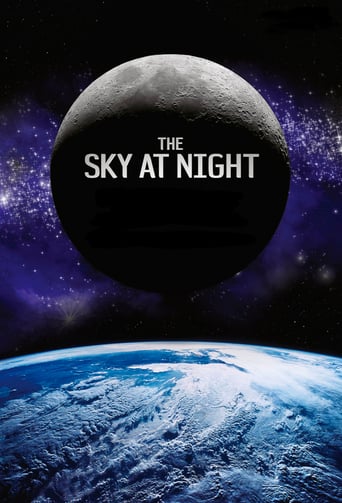MrMuffinMan
You don't need to know anything about astronomy to enjoy The Sky at Night. Patrick Moore, his co-presenters and guests make sure that whatever topics they are discussing, whether meteoroids or supernovae, dark matter or Moonquakes, all are explained so that casual viewers can have some level of understanding. Educational and accessible, you would have thought the BBC would promote the programme and build on the way it is not afraid to discuss challenging theories and ideas about the stars, the nature of matter, the universe and lots more (pardon the pun). Sadly TSAN appears is being gradually pushed more and more to the margins of BBC output, shifted to BBC World or BBC4, almost no promotion, and with no crossover where it could be most valuable in an educational role, between TSAN and children's programmes. Just like the stars in the heavens, it takes a little bit of time and effort to find TSAN - but it is very much worth your while. Do it while you can!
screenman
'Ere, if this is the longest-running show in the galaxy, how come there's only 2 comments? That'll be the British again, taking their national treasures and heritage for granted.Paddy Moore is an institution. Like David Attenborough, Bruce Forsythe, and one or two others who defy the decades; we'll only miss 'em when they're gone. Then it'll be 'do you remember so-and-so?' They were good, weren't they?' And so on.Mr Moore has been presenting this programme from the time when I was too young to stay up and watch it. A few years passed and my parents relented. He was a handsome - if slightly quirky - fellow in those days, with a full head of thick, dark hair. The programme was - and is - fairly short, And PM compensated for this by talking very quickly. I believe he won an award for it. Once, when in full flow, he swallowed a big, juicy fly.Now my own hair is grey and falling out and he's still at it, like some sort of Timelord.I got into astronomy when most people didn't know what astronomy meant. It was generally perceived as a branch of the occult. The name was like 'astrology'. You spent a lot of time out at night. And you were familiar with the Zodiac. Astronomers were regarded as being a little bit peculiar. They tended to utter very strange words, that sounded like magical incantations.Happily, the Apollo mission changed all of that.If I have ever had a quibble with the programme, it was the lack of practical evaluation - looking at, and testing new gear, for example -in deference to concentrating upon theoretical astronomy and cosmology. Perhaps the brevity of the slot made that difficult.Nowadays, you can hardly see the sky for light-pollution. Generations are growing-up to be denied the greatest show on earth. It's something our ancestors have taken for granted ever since the human species arose.Patrick Moore and 'The Sky At Night' is very much a tenuous link with the past. When this programme finally succumbs to the inevitable contempt and disinterest of BBC management, the sky will become a closed book once more.Better watch the programme while there's still time. And write some comments too, you apathetic shower!
S
Not just the longest running TV show in British history, but in fact The Longest Running TV Show in World.That this is still going out every 4th Sunday after all those years is testament to the huge popularity of Sir Patrick Moore, who has received many honors for his outstanding services to astronomy (which includes, among other things, introducing countless kids to science)Often broadcast live, the programme has sometimes been the victim of cloudy skies and other bad weather, but it has always been a show with great importance (and a source of great enjoyment) for both amateur and professional astronomers alike.Being an international expert in the subject, Patrick Moore provided some of NASAs maps for the 1969 moonlandings, but it is interesting that the BBC wiped all the footage of him commentating on it!


